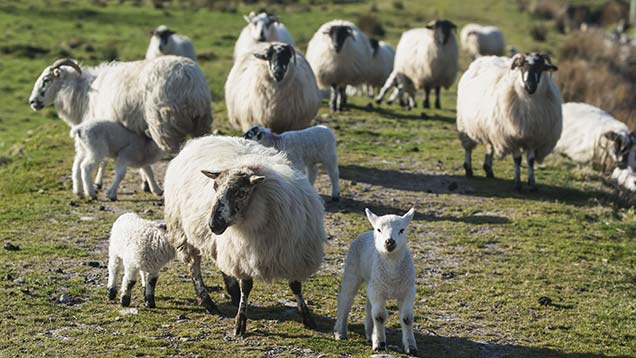Mild autumn ramps up late worm threat to sheep
 © Rex
© Rex Sheep farmers are being warned about the late threat from worms, as an unusually warm and wet October and November has enabled worm larvae to survive later into the year.
Vets from Dorset-based Synergy Farm Health are warning farmers to remain particularly vigilant with parasite control in sheep.
Kat Bazeley, small ruminant specialist vet at Synergy Farm Health, says: “Usually by the end of November we would expect worm burdens to be disappearing, but across the South West we are seeing farms with astronomically high worm egg counts.
See also: New genetics research launched to help improve ewe longevity
“As ever, lambs are particularly susceptible and our clients are seeing severe cases of store lambs losing condition as well as a significant number of deaths,” she says.
At a time of year when farmers are not usually focusing on parasite control, Synergy Farm Health vets has seen numerous cases across Dorset, Somerset and Devon of high worm burdens affecting flocks of all sizes and in some cases even those recently drenched with effective wormer.
“The very high worm burdens this winter are making wormer resistance a greater problem than usual so that treatments are not even slightly reducing symptoms. Lambs are highly at risk this winter and we are urging farmers to be extra vigilant.
“We strongly recommend that farmers continue to think about parasite control in their lambs and should be monitoring growth rates, keeping up faecal egg counts and testing for wormer resistance.
She urges farmers to plan with their vet and ensure that they stick to the SCOPS (Sustainable Control of Parasites in Sheep) principles.
“Finally, be aware that the worm’s lifecycle means that even when the temperature does suddenly drop lambs could be at risk for up to three more weeks.”
